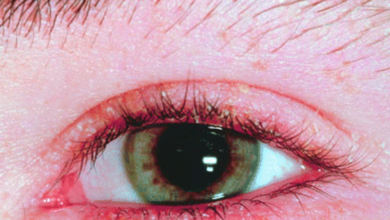Best Healthcare Technology Courses in 2023

The field of healthcare technology has been rapidly evolving, revolutionizing the way healthcare is delivered and managed. As technological advancements continue to shape the healthcare industry, the demand for skilled professionals who can navigate these technologies is on the rise. In this article, we will explore some of the best healthcare technology courses in 2023 and their significance in this digital era.
Read More: Smarter Technology Provides Best Virtual Healthcare Services
Importance of Healthcare Technology Courses
Advancements in Healthcare Technology
In recent years, healthcare has witnessed significant advancements due to technology. From artificial intelligence (AI) and data analytics to telemedicine and blockchain, these innovations have the potential to improve patient outcomes, streamline processes, and enhance overall healthcare delivery. Healthcare technology courses equip individuals with the knowledge and skills required to leverage these technological advancements effectively.
Increasing Demand for Skilled Professionals
With the increasing integration of technology in healthcare, there is a growing demand for professionals who can understand and implement these innovations. Healthcare technology courses provide individuals with specialized skills and expertise, making them valuable assets in various healthcare settings such as hospitals, clinics, research institutions, and health tech companies.
Top Healthcare Technology Courses in 2023
Artificial Intelligence in Healthcare
AI has transformed various aspects of healthcare, including diagnosis, treatment planning, and patient monitoring. Healthcare technology courses focusing on AI provide insights into machine learning algorithms, natural language processing, and computer vision, empowering individuals to develop AI-based solutions for healthcare challenges.
Data Science and Analytics in Healthcare
Data science and analytics play a crucial role in deriving meaningful insights from vast amounts of healthcare data. Courses in this domain teach individuals how to analyze and interpret healthcare data, enabling them to identify trends, make informed decisions, and improve patient outcomes.
Health Informatics
Health informatics deals with the effective management and analysis of healthcare information. Courses in health informatics cover topics such as electronic health records, clinical decision support systems, and health data standards. Professionals trained in health informatics can contribute to the development and implementation of robust health information systems.
Telemedicine and Telehealth
Telemedicine and telehealth have revolutionized healthcare delivery by enabling remote consultations, diagnosis, and treatment. Courses in this area provide individuals with the knowledge of telecommunication technologies, legal and ethical considerations, and patient engagement strategies, preparing them to embrace the future of healthcare.
Blockchain in Healthcare
Blockchain technology offers secure and transparent data sharing and management, addressing issues like data privacy and interoperability. Healthcare technology courses focusing on blockchain educate individuals on the fundamentals of blockchain, its applications in healthcare, and the potential impact on patient privacy, data security, and healthcare interoperability.
Virtual and Augmented Reality in Healthcare
Virtual and augmented reality have found their way into healthcare, providing immersive training experiences, preoperative planning, and rehabilitation therapies. Courses in this field introduce individuals to the applications of virtual and augmented reality in healthcare, enabling them to create innovative solutions and improve patient outcomes.
Cybersecurity in Healthcare
As healthcare systems become more digitized, the need for robust cybersecurity measures is paramount. Healthcare technology courses specializing in cybersecurity equip individuals with the skills to protect sensitive patient data, prevent cyber threats, and ensure the integrity of healthcare systems.
Robotic Process Automation in Healthcare
Robotic process automation (RPA) streamlines repetitive tasks, reducing human error and improving operational efficiency. Courses in RPA for healthcare teach individuals how to automate workflows, optimize administrative processes, and integrate RPA technologies into healthcare systems.
Benefits of Pursuing Healthcare Technology Courses
Career Opportunities
Pursuing healthcare technology courses opens up a wide range of career opportunities. Graduates can work as health technology consultants, data analysts, clinical informaticists, healthcare system administrators, or even entrepreneurs in the health tech industry. The demand for professionals with specialized healthcare technology skills is expected to grow significantly in the coming years.
Enhanced Patient Care
By understanding and leveraging healthcare technologies, professionals trained in healthcare technology courses can contribute to improved patient care. They can develop innovative solutions, enhance diagnostic accuracy, optimize treatment plans, and facilitate personalized healthcare experiences.
Improving Healthcare Efficiency
Healthcare technology courses focus on streamlining processes and optimizing workflows, leading to increased efficiency in healthcare settings. By leveraging technology effectively, professionals can automate tasks, reduce paperwork, and improve overall operational efficiency, allowing healthcare providers to dedicate more time to patient care.
Innovative Solutions
Healthcare technology courses foster creativity and problem-solving skills. Graduates are equipped with the knowledge and expertise to identify healthcare challenges and develop innovative solutions. Whether it’s leveraging AI for disease diagnosis or implementing blockchain for secure health data exchange, professionals can contribute to transformative changes in healthcare.
Factors to Consider When Choosing a Healthcare Technology Course
Accreditation and Reputation
When choosing a healthcare technology course, it is essential to consider the accreditation and reputation of the institution or program. Look for courses offered by reputable universities or institutions that are known for their quality education and industry recognition.
Curriculum and Course Content
Review the curriculum and course content to ensure that the program covers relevant topics in healthcare technology. Look for courses that provide a comprehensive understanding of emerging technologies and their applications in healthcare.
Industry Partnerships and Practical Experience
Consider programs that have strong industry partnerships, as they often provide opportunities for practical experience and internships. These partnerships can enhance your learning experience and provide valuable networking opportunities.
Faculty Expertise
The expertise and qualifications of the faculty members delivering the course are crucial. Look for courses taught by experienced professionals who have practical experience in the healthcare technology field.
Flexibility and Learning Environment
Consider your personal preferences and learning style when choosing a healthcare technology course. Evaluate factors such as the course delivery format (online, in-person, or hybrid), flexibility of schedules, and the learning environment that best suits your needs.
Conclusion
Healthcare technology courses play a vital role in preparing individuals for the ever-evolving field of healthcare. By equipping students with the necessary skills and knowledge, these courses empower professionals to navigate the complex intersection of technology and healthcare. Pursuing the best healthcare technology courses in 2023 can open doors to exciting career opportunities and contribute to improving patient care, healthcare efficiency, and innovative solutions in the healthcare industry.
Read More: Innovations in Disability Technology in 2023
FAQs
What are the prerequisites for enrolling in healthcare technology courses?
The prerequisites for healthcare technology courses may vary depending on the program and institution. However, most courses require a minimum educational background in a related field such as healthcare, computer science, or engineering. Some courses may also have specific prerequisites related to mathematics, programming, or statistics.
Are there any online options available for healthcare technology courses?
Yes, there are various online options available for healthcare technology courses. Many reputable universities and online learning platforms offer healthcare technology programs that can be completed remotely. These online courses provide flexibility and accessibility for individuals who prefer to learn at their own pace or cannot attend traditional in-person classes.
How long do healthcare technology courses usually last?
The duration of healthcare technology courses can vary depending on the program and the level of specialization. Some courses may be completed within a few months, while others may span one to two years for more comprehensive programs. It is important to review the course details and curriculum to determine the specific duration.
Can healthcare technology courses be pursued part-time?
Yes, many healthcare technology courses offer part-time or flexible study options to accommodate individuals who are working or have other commitments. Part-time courses allow students to balance their professional and personal responsibilities while acquiring the necessary skills and knowledge in healthcare technology.
Will completing a healthcare technology course guarantee a job in the field?
While completing a healthcare technology course can enhance your employability in the field, it does not guarantee a job. The healthcare technology industry is highly competitive, and other factors such as practical experience, networking, and job market conditions also play a significant role in securing employment. However, pursuing a healthcare technology course equips you with the skills and knowledge sought after by employers, increasing your chances of finding rewarding opportunities in the industry.







